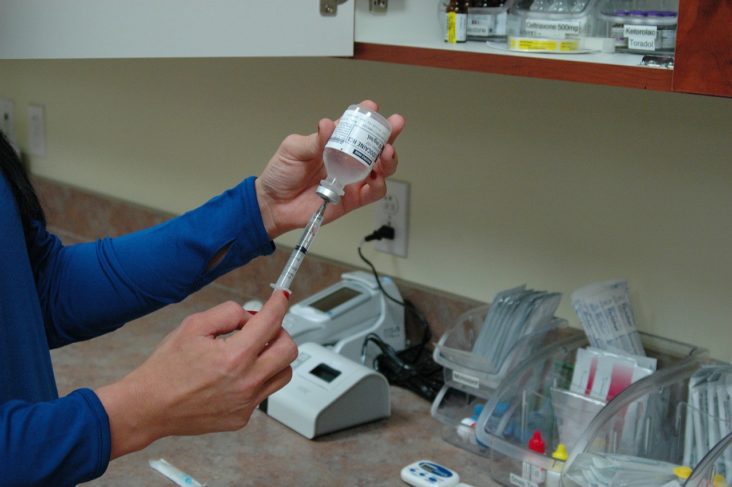The Centers for Disease Control (CDC) reports that autism, classified as a developmental disability, is on the rise in the United States and around the world. Currently, about 1 child out of every 68 will be diagnosed with Autism Spectrum Disorder (ASD). Obviously, when there is an increase in a disorder or disability, people begin to look for reasons for that change. Because signs of ASD can be seen as early as the age of two, the focus has been on potential factors a child may experience early in life that could contribute to an autism diagnosis. From birth, children receive many and varied immunizations, so fears have been raised of a possible connection between these vaccines and autism.
In particular, there have been concerns about the measles, mumps, and rubella (MMR) vaccine and thimerosal, a mercury-based preservative that had been used in MMR and other inoculations. Since 2003, nine studies have been conducted into the relationship between thimerosal and ASD, however the Institute of Medicine has determined there is no link between the vaccine and the development of autism.
In reaction to fears over whether thimerosal in vaccines and autism were related, between 1999 and 2001, the preservative was either removed from vaccines or reduced to negligible amounts. Today, this preservative is only found in some flu vaccines and is limited to use in multi-dose vials. If you are still worried, you can request your child receive a thimerosal-free vaccine.
Lastly, a 2013 study by the CDC determined there is no link between vaccines and autism. It looked at the number of antigens that help the body’s immune system fight disease and found no difference between children with ASD and children without the disorder.
Then, What Causes Autism?
There are many categories of disability along the autism spectrum and, at this time, specialists haven’t found any one specific reason for the development of autism. The CDC is conducting research to find out if the disorder has environmental, biological, or genetic causes.
We do know there are factors that can indicate a more likely chance of a child developing autism. These components are:
- Children with autistic siblings are more likely to develop the disability.
- Children born to older parents are more likely to be at risk.
- It is thought that the critical developmental time for ASD is in utero, or in the period during or immediately after birth.
- The prescription medicines valproic acid and thalidomide have been linked to a higher ASD risk in the infant, when these medications were taken during the pregnancy.
- ASD occurs more often in people who have certain chromosomal or genetic conditions (for example: Fragile X Syndrome).
Early Signs of Autism
Autism can affect either gender, but occurs about 4.5 times more often in males than in females. It is found in every cultural, socioeconomic, and racial background, although it is more prevalent in white children than in African-American or Hispanic children.
People with ASD may have problems communicating or interacting with others, or may have difficulty focusing or learning. Additionally, early signs of Autism Spectrum Disorder may include:
- Avoiding eye contact
- Lack of interest in objects or in relating to people
- Becoming upset if routines change
- Unusual reactions to stimuli, such as smells, tastes, textures, or sounds
- Repeating words or phrases or repeating actions over and over
- Preferring to spend time by themselves
Diagnosis, Evaluation, and ASD Treatment
The earlier a child is diagnosed and begins treatment, the better their chances of reaching their full potential. ASD treatment and early intervention can begin as soon as 3 months of age. Although there is no cure for ASD, early intercession can reduce the severity of a child’s developmental delays and can teach them important skills.
If you are concerned about your child and the way they interact with you or others, the way they learn, or the way they speak or act, the first step is to call your child’s pediatrician and share your worries. Your child’s doctor can help answer your questions and, if alarmed, should refer you to specialists for further evaluation. Psychologists, psychiatrists, pediatric neurologists, and/or developmental pediatricians have been specially trained to assess and diagnose Autism Spectrum Disorder.
If you need a free assessment, you can contact your state’s early intervention programs. To find out more about your particular state’s Child Find evaluation, visit the Early Childhood Technical Assistance Center.
Our Children’s Center Can Help
If you have questions about the early signs of autism, treatment and intervention, or other autism-related concerns, the professionals at our child-focused department, The Children’s Center, can help. For more information, contact the Children’s Center for Psychiatry Psychology and Related Services in Delray Beach, Florida or call us today at (561) 223-6568.




